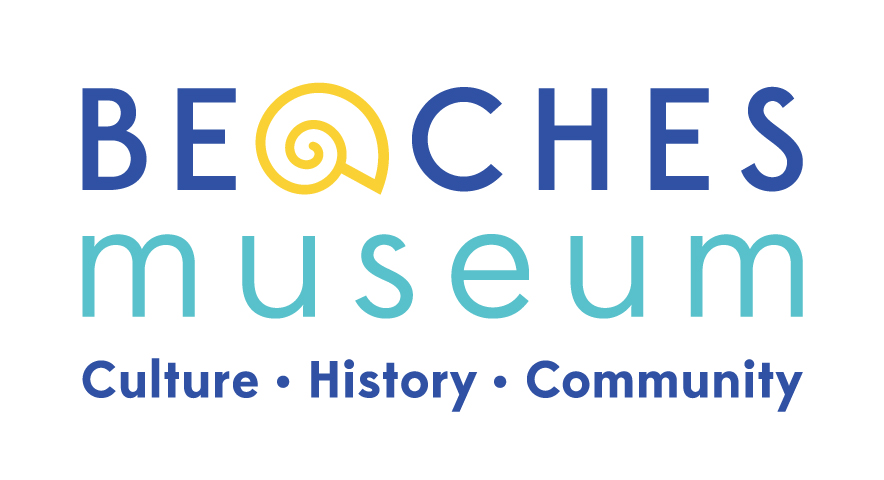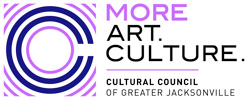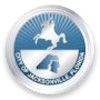COLLECTIONS MANAGEMENT POLICY
I. Mission Statement
The Beaches Museum, a not-for-profit organization is operated by the Beaches Area Historical Society and will hereafter be known as the Beaches Museum. The Museum is located in the state of Florida, and is defined as such by the By-Laws of the organization, adopted in 1978, has set forth the following mission statement, The mission of the organization is: To preserve and share the distinct history and culture of the Beaches area.
II. Purpose
The Beaches Museum will collect only those items, as indicated below, that were made and/or used in the Beaches area (geographic parameters extending from the mouth of the St. Johns River to the south, encompassing the communities of Mayport, Atlantic Beach, Neptune Beach, Jacksonville Beach, Ponte Vedra Beach, and Palm Valley) or were associated with a person, place or event within the Beaches areas as defined above; and which fall between the initial period of human occupation of this region of Northeast Florida and the present; and which are useful in interpreting the history, culture, and environs of the inhabitants of the Beaches area and are of enduring historical or contextual value as determined by the Archives and Collections Manager.
The Beaches Museum will collect for preservation and interpretation specifically:
A. Archival Material – paper objects, printed matter, records, maps,
photographs and other illustrative material, manuscripts, personal,
organizational, and business records that are unpublished, unique or of
limited production
B. Collections Items – all other non-archival, physical objects, such as
wood, metal, furniture, glass ceramics, textiles, etc.
Reference to archives and collections, in general, shall refer to all the holdings of the Beaches Museum.
III. Acquisitions Policy
Materials and objects considered for acquisition by the Beaches Museum must meet the following criteria:
- The acquisition must conform to Beaches Museum collecting purpose
detailed in Section II; - The material or object(s) must significantly contribute to the realization of the mission;
- Beaches Museum must be in a position to properly care for the proposed acquisition;
- Acquisition must be completely free of donor-imposed restrictions;
- Donor must have a clear title;
- The material or object(s) must, if at all possible, be documented as to
provenance; - No acquisition will be encumbered by less than full literary rights, property rights, copyrights, patents, or trademarks, or by obscene or physically hazardous attributes;
- No material or object(s) shall be considered for acquisition if its
procurement encourages the destruction of historical or natural sites; - No material or object(s) shall be considered for acquisition if its
procurement violates national exportation laws; - No material or object(s) shall be considered for acquisition if its
procurement contravenes national or religious tradition or rites; - No material or object(s) shall be considered for acquisition if its
procurement is a product of illicit trade; - No material of object(s) shall be considered for acquisition if its
procurement violates the Endangered Species Act; - Potential donors of material or object(s) unrelated to the mission of
Beaches Museum shall be directed to institutions more fitting to their gifts.
IV. Responsibility
The Beaches Museum shall take the necessary action to ensure security, documentation, handling, storage, and conservation of its collections in accordance with established guidelines of the American Association of Museums. An Executive Director appointed by the Board of Directors shall be responsible for employing an Archives & Collections Manager, who shall be responsible for the day-to-day care of the collection. If additional personnel are deemed necessary for the care of the collection, the Executive Director shall also, with the approval of the Board, be responsible for filling any such positions.
The Archives & Collections Manager shall maintain, update, and adhere to a Collections Policy approved by the Board of Directors. In addition to the care of the collection, the Archives & Collections manager shall also be responsible for accessions, deaccessions, and incoming and outgoing loans.
V. Mechanics of Accession
Any items brought to the Museum or under consideration shall either be approved or unapproved by the Archives and Collections Manager. If the item is approved, the donor and a staff representative shall sign a Deed of Gift.Appraisals for the purpose of tax deduction or any other purpose
shall be the responsibility of the donor and may not be made by
any member of the Museum staff or Board members. An acknowledgment of receipt under the Museum’s in-kind donation guidelines will be sent out in a timely fashion.Items should be photographed, measured, and a unique accession number shall be permanently affixed to them before they are
entered into the permanent collection. After it has received its permanent accession number, an accession record shall be kept both in the physical accession records and in PastPerfect.
VI. Deaccessions
The purpose of deaccessioning is to refine the collection so it will help carry out the Museum’s purpose and mission. Deaccession is the process of removing permanently from the collection any accessioned object. The process shall be cautious, deliberate, and scrupulous. The deaccession or consideration of deaccession of objects from the Beaches Museum shall be an ongoing process as the Museum continues to meet its objectives of establishing higher quality in all areas of its collections. Beaches Museum must be certain it has a clear title and the legal right to dispose of any object considered for deaccession.
Deaccession Criteria. Objects considered for deaccession must meet at least
one of the following criteria:
- The material or object is outside the scope of the purpose and
mission of the Museum and/or its collections policy; - The material or object has failed to retain its identity or authenticity,
or has been lost or stolen from the museum and remains so for more
than two years; - The material or object is a duplicate;
- The Museum is unable to properly care for the material or object;The material or object has deteriorated beyond usefulness;
- The material or object has doubtful potential utilization in the
foreseeable future; - The material or object has been accessioned twice;
- The material or object has been found to have been acquired by
non-legal means.
Deaccession Policy
The Archives & Collections Manager will decide to deaccession material or objects if, in their best judgment, one or more of the criteria for deaccession has been met. The Manager will also determine the means of disposal, which may include (1) exchange or transfer to another
institution; (2) sale; (3) addition to an education collection; (4) repatriation in the case of improperly obtained items; (5) or if no other alternative exists, or the condition necessitates it, disposal or destruction.
Ethics of Sale
Collections materials and objects shall not be given, sold, or otherwise transferred to Museum staff, officers, board members, or their immediate families or representatives.
Method of Sale
Negotiated private sales, public auctions, and time-sealed or open bids are acceptable methods of sale.
Proceeds
All proceeds resulting from the sale of deaccessioned objects from
the permanent collections of the Beaches Museum shall be used to further the care of the collection.
Gifts to Other Institutions
The Museum may benefit from the release of items in the form of gifts to other institutions. It shall be the policy of the Museum to consider such actions upon request or if the circumstances arise.
VII. Loans
The purpose of a loan is to enhance the mission of the Museum. Loans from the Museum should extend its purpose and mission outside the walls. Loans to the Museum should augment its purpose while increasing the effectiveness of the collection. The Archives & Collections Manager has the authority to recommend that the Museum lend or borrow objects. They will not lend or borrow objects without a properly executed Loan Form. The Museum may not accept or grant “permanent loans.”
Incoming Loans.
The term of a loan shall be one year. If the need for the artifact extends past one year, the loan may be extended for a year. Loans to the Museum will be confined to those objects for which the Museum can care under the same standards as its own collection. A loan register will be kept on all incoming loans. If a loan is abandoned, defined as left for more than one year past the date of return agreed upon by both parties, three good-faith attempts to contact the owner shall be made before the object will be considered for
accession to the collection or disposal.
Outgoing Loans
The Museum will lend objects primarily for exhibition in another museum or to a qualified conservator for conservation. Loans may be made to other nonprofit educational agencies if the Archives & Collections Manager is
assured that the object will be cared for and displayed in a manner that meets or exceeds Museum standards. Loans will be made only to institutions that have a standard of care equaling or exceeding ours. The term or a loan from the Museum is one year. For extended loans, the period may be extended for a year.
VIII. Photography of Collection
The Archives & Collections Manager shall work to have every object in the
collection of the Museum, and all new acquisitions, photographed for
identification purposes.
IX. Conservation and Storage
The Archives & Collections Manager will be responsible for the conservation of the collection. They will determine the actions needed for the conservation of the items. Each object will be assigned a permanent location, and the object will be said to “live” at that spot. When objects are moved, even if temporarily, the new location will be tracked in the PastPerfect record. Archives and Collections will be kept at temperatures and relative humidity levels as close to industry standards as possible.
X. Inventory
Due to the size of the collection, the Museum will inventory its collection
biannually. The inventory will consist of an examination of each object and the records. The condition of each object shall be noted. Records will be updated as needed. Each inventory list will be filed in the Accession File.
XI. Appraisals
No member of the Museum staff or the Board of Directors may appraise an
object as to its monetary value, or give more than a qualified assessment of
identity or age. The Museum will not pay an outside appraiser to establish a
value on any object being donated to the Museum.
The Archives & Collections Manager will not evaluate incoming loans for
monetary worth but will depend on the owner to supply value should the need arise for insurance.
XII. Other Properties
The expendable non-collection property of the Museum is not part of this policy.
Reproductions of authentic objects used in exhibits or demonstrations are
properties and should not be accessioned. The Archives & Collections Manager will maintain a record of these properties. In the event a property is taken into the collection, it shall be accessioned in the regular manner and given the same care as any item in the collection.
XIII. Ethics
All actions of the Board of Directors and Museum staff should be such that they avoid an appearance as well as an actual conflict of interest with any aspect of the Museum operation and its collection. The members of the Board and staff will follow the practices in a Board approved Ethics Policy and the Code of Ethics for Museums (published by the American Association of Museums).
XIV. Protection of Intellectual Assets
For the purposes of this policy, the intellectual assets of the Museum consist of the images of objects and documents in the collection, the images and content of programs, and physical copies of objects in the collection. Reproduction of an image from the collection by an outside source will be done in accordance with the Reproduction Release for Photographic Materials form and with the approval of the Archives & Collections Manager. Exceptions will be determined by the Archives & Collections Manager.
XV. Access
Access to the collections is restricted and allowed only under the direct
supervision of Museum staff. The Archives & Collections Manager may limit
access to the material or object to specified methods of examination and to
certain times. The Archives & Collections Manager may require a written
request, stating which objects are to be examined, the method of examination, and the reasons for the examination.
The collections storage room and archive room are closed to the general public and will be excluded from general tours with the following exceptions:
- Those involved with daily operations at the Museum
- Visiting museum professionals or professionals from cultural groups
- Visiting researchers
- Potential donors, Board members, or committee members
- Other groups or individuals may be granted access by permission of the Archives & Collections Manager or the Executive Director.
XVI. Public Document
This Collections Policy is a public document. A copy shall be kept in the
Museum’s office and made available to any interested person on the Museum’s website.
XVII. Review
The Collections Management Policy shall be reviewed and updated every 5
years.
XVIII. Amendments
The Collections Policy may be amended by a resolution of the Board of
Directors.



